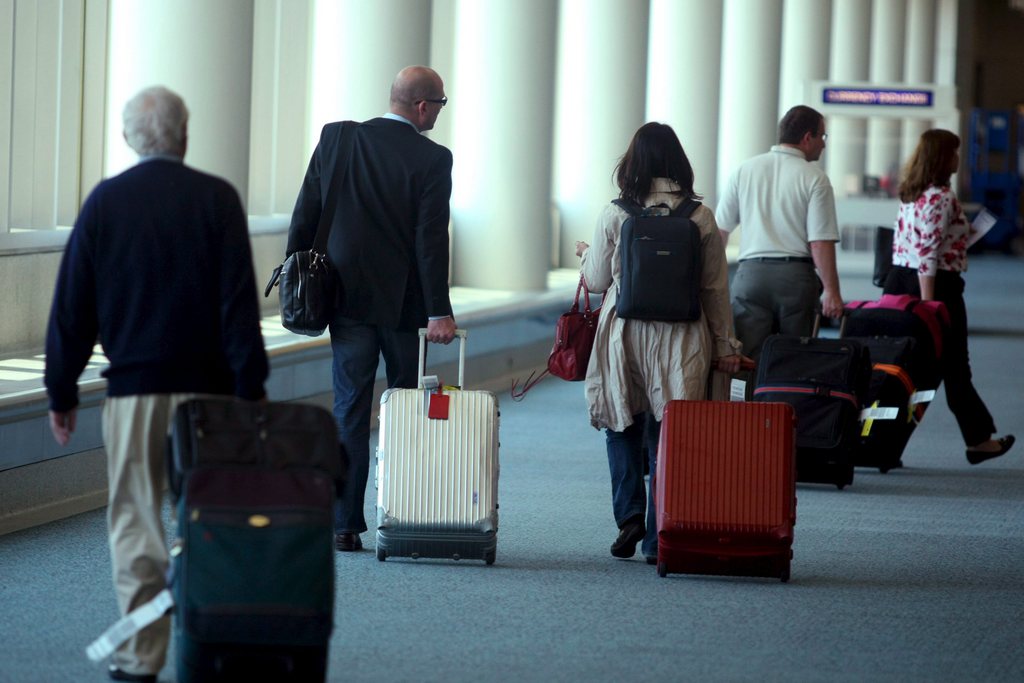US may target Swiss bankers travelling in Europe

Swiss bankers whose names were delivered to the United States in April as part of the crackdown on US tax evaders face the risk of arrest while travelling in some European countries, not just on US soil.
Extradition treaties between the US and countries including France, Germany, Italy, Austria and Britain make it possible for the US to take legal steps via Interpol against bankers suspected of helping US citizens evade taxes, Denise Chervet, central secretary of the Swiss Bank Employees Association told the Swiss News Agency.
“If the US issues an arrest warrant via Interpol, the employee targeted could be arrested in any country with which Washington has an extradition treaty, and where the alleged offences are also punishable,” Chervet said.
Around 10,000 employees of 11 banks under investigation by US authorities could be affected by potential travel restrictions.
Chervet said that employees visiting the US who had had direct contact with American clients “run the risk of being arrested for violating American tax laws for having assisted with tax evasion”. Other bank employees who may not have had direct contact with clients could be called as witnesses, she said.
Bankers’ families could also be implicated: a report in La Tribune de Genève newspaper this week said two teenagers who arrived in the US to visit their grandparents were interrogated by officials for six hours about the whereabouts and working habits of their father, a Geneva banker.
Staying put
Following pressure from the US government, in April the Swiss government authorised the eleven banks to deliver the names of their employees to the US authorities. The data, however, had to be encoded.
Since then, some 10,000 files have been relayed to the US Department of Justice containing written correspondence and notes of telephone calls made between bank staff and US clients. Some of this data has been used to identify specific bank staff.
Swiss bank employees, fearful of how the decision to hand over data could affect them, have begun legal proceedings against banks and the government in an effort to find out what personal data was transferred to the US.
“You don’t know what the US is planning to do with the data of bank employees. As a precaution I’m advising my clients not to leave Switzerland,” said Geneva lawyer Douglas Hornung, who represents 40 current and former bank employees.
The dispute between the two countries over Switzerland’s bank secrecy laws and US citizens’ use of Swiss accounts to shield untaxed income has overshadowed relations since 2009, when Swiss bank UBS was fined $780 million (SFr.755 million) for helping US citizens dodge taxes.
A double-taxation accord signed by the Swiss and US governments in September 2009 was revised and ratified by the Swiss parliament in March, but still requires ratification by the US Senate.
Swiss Finance Minister Eveline Widmer-Schlumpf said at a press conference on Tuesday that the government had authorised banks to hand over data to US authorities for the purpose of self-defence. The finance minister said she plans to meet with bank employees who may be affected by the delivery of data.
The government had unable to ascertain whether the banks acted in accordance with data privacy acts and labour laws, Widmer-Schlumpf said. However she stressed that the responsibility lies with the banks involved and with Swiss financial market regulator Finma.

In compliance with the JTI standards
More: SWI swissinfo.ch certified by the Journalism Trust Initiative













You can find an overview of ongoing debates with our journalists here . Please join us!
If you want to start a conversation about a topic raised in this article or want to report factual errors, email us at english@swissinfo.ch.